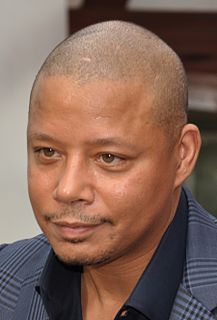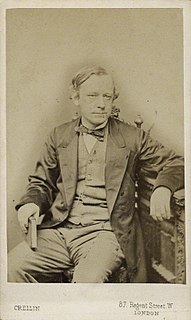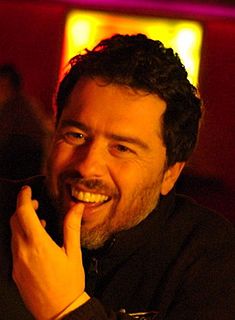A Quote by Guy Maddin
The fact that you couldn't see Alfred Hitchcock's first film The Mountain Eagle, or that you couldn't see so many of F.W. Murnau's masterpieces, or that you couldn't see so many of Oscar Micheaux's really intriguing race melodramas, made with fierce independent spirit against all odds in '20s and '30s America. That stuff haunted me. They really did bring to life a sense of 20th Century history: cultural history, pop history, gender politics and race politics, socio economic history, all that stuff. It was bracing and instructive.
Related Quotes
If you know the history of the whole concept of whiteness if you know the history of the whole concept of the white race, where it came from and for what reason you know that it was a trick, and it's worked brilliantly. You see, prior to the mid to late 1600s, in the colonies of what would become the United States, there was no such thing as the white race. Those of us of European descent did not refer to ourselves by that term really ever before then.
Film is the manipulative medium par excellence. When you think back on the history of film and the 20th century, you see the propaganda that's been made. So there are moral demands on the director to treat the spectators as seriously as he or she takes himself and not to see them merely as victims that can be manipulated to whatever ends they have.
Of course, in the reality of history, the Machiavellian view which glorifies the principle of violence has been able to dominate.Not the compromising conciliatory politics of humaneness, not the Erasmian, but rather the politics of vested power which firmly exploits every opportunity, politics in the sense of the "Principe," has determined the development of European history ever since.
Black History is enjoying the life of our ancestors who paved the way for every African-American. No matter what color you are, the history of Blacks affected everyone; that's why we should cherish and respect Black history. Black history changed America and is continuing to change and shape our country. Black history is about everyone coming together to better themselves and America. Black history is being comfortable in your own skin no matter what color you are. Black history makes me proud of where I came from and where I am going in life.
I went to film school and studied Alfred Hitchcock. I knew of Alma Reville existence, but had no idea really who she was or how influential she was on him. She stayed in the shadows. Go online, and there are hardly any images or film of her. She really stayed out of the limelight on purpose. She didn't want it, and I think that's one of the reasons that she's really lost in the shadows of Hitchcock's history to a degree.





































